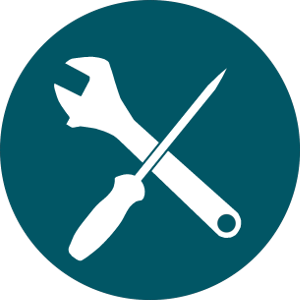Building Capacity
Building Capacity: Local training and skills development for homeownership, construction, and maintenance
Product of the Northern Housing Forum
Yellowknife, NT, May 2018
 BUILDING CAPACITY |
Investing in community capacity will improve northern housing sustainability. Options to increase capacity include local labour pools, college trades and building science programs and increasing home maintenance skills for northern housing corporations, owners and occupants.
 RECOMMENDATIONS |
- Train and hire motivated individuals who are committed to the community:
- – Engage with community members and community service providers to identify candidates for training initiatives
- – Reduce barriers to participation by providing social supports, such as childcare, to trainees
- – Foster partnerships with northern colleges and other training providers
- – Ensure training content reflects local technologies and materials used (building science principals and traditional trades training)
- Develop programs to build homeowner/occupant capacity:
- – Train owners and occupants on housing maintenance. Provide, user-friendly guides on home systems, such as ventilation use and maintenance
- – Provide incentives for taking care of the house and reporting malfunctions (e.g. Reduction in rent, prizes, seminars)
- – Build financial literacy of homeowners and occupants
- Develop programs to build local labour capacity:
- – Provide training programs for community members who face barriers to employment
- – Offer apprenticeships and job-shadowing programs
- – Make training/certification a requirement within construction contracts
- – Ensure occupant involvement in home construction (e.g. Habitat for Humanity)
- Obtain long-term funding for capacity building programs:
- – Focus on funding streams that are reliable and sustainable and advance participants through a series of programs
- Focus on youth:
- – Continue to raise awareness of construction trades through job demonstrations in schools, work experience credits and practicums
- – Increase skills for entry-level employment opportunities by including practical trades curriculum in grade school, co-op experiences and building science to understand relationship between mould and moisture.
 CONDITIONS FOR SUCCESS |
- Alleviate hidden barriers: Some of the individuals who would be a good fit for training might need additional support to successfully complete their program, such as child care, literacy, and health supports. Partnerships with community support providers may help address these hidden barriers.
- Promote cultural awareness: Employees from diverse cultural backgrounds may also have distinct work cultures. Understanding and accommodating cultural differences will help foster trainee retention and success (e.g., understand the working hours of local labour).
- Employ local labour: Prioritize local hiring in construction through contract requirements. Requiring future occupants to participate in the construction of their house has been a successful approach under existing programs such as the Cold Climate Housing Research Center’s Sustainable Northern Communities program.1
- Using repeatable designs: Building similar styles of homes, with minor variations, increases the efficiency in which additional units can be built, with similar materials (ordering in bulk reduces costs, and replacement parts are available in remote communities).
 SUCCESS STORIES |
Makivik Corporation’s Construction Division actively promotes Inuit hiring and provides cross-cultural and on-the-job training. This has promoted the growth of local expertise in housing construction and maintenance. The skills gained are not only transferrable to other construction sites, but also to other industries.2.3
Building urban industries for local development (BUILD) offers a paid training program for people facing significant barriers to employment, including criminal records, addictions and lack of a high school diploma. The program gives trainees access to mentors and support workers, in-class training, and practicum placements. This program has had success in Northern Manitoba.4
Forward Vision Games offers financial simulation games to improve the financial literacy. The games aim to build practical skills and long-term planning by simulating real world financial experiences. Forward Vision Games has a specific focus on Indigenous inclusion and capacity building, and has targeted content for Indigenous youth, adults, and leaders. 5
The Northwest Territories Housing Corporation’s Solutions to Education Persons (STEP) program includes courses and counselling on: budgeting, banking and credit, home purchase, and, home maintenance/repair.6
__________________________
- Grunau, B. 2018. Promoting and advancing the development of healthy, durable, and sustainable shelter for Alaskans and other Circumpolar people. 2018 Northern Housing Forum, Yellowknife.
- Makivik Corporation. 2018. Construction Division. URL: http://www.makivik.org/housing-development/
- IISD. 2016. Best Practices in Sustainable Housing Delivery in Inuit Nunangat. Prepared for Inuit Tapiriit Kanatami. URL: https://www.itk.ca/wp-content/uploads/2016/11/Best-Practices-in-Sustainable-Housing-Delivery.pdf
- BUILD. Training Programs. URL: https://mb.211.ca/program-at-site/build-inc-at-build-inc/
- Forward Vision Games. URL: https://www.forwardvisiongames.com/
- NWT HC. 2014. Educational Courses (STEP). URL: http://nwthc.gov.nt.ca/node/16
